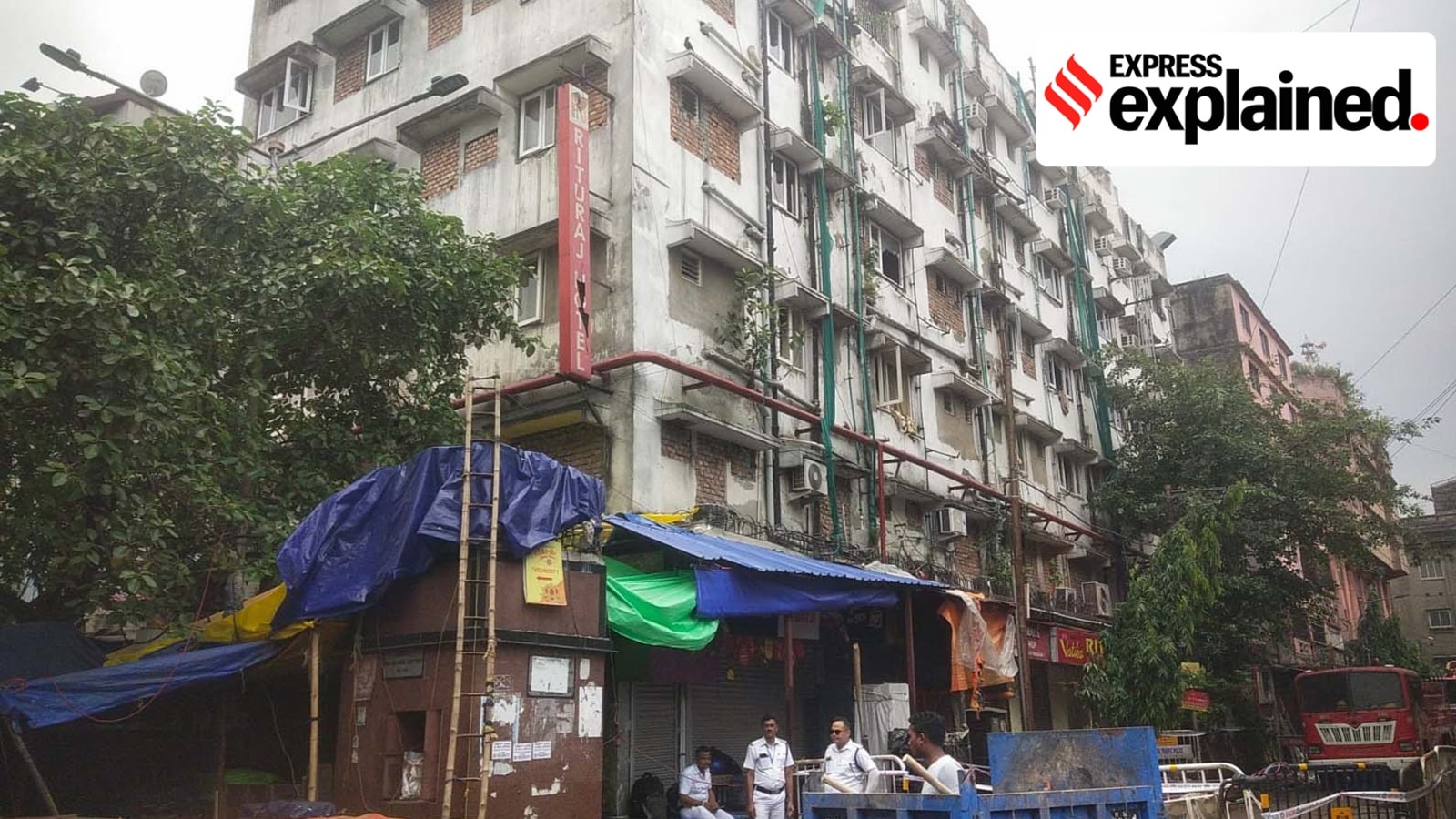Earlier this month, the Calcutta High Court stayed a Kolkata Municipal Corporation (KMC) order which directed the demolition of a rooftop restaurant in the city.

Announced by Mayor Firhad Hakim, the measures were aimed at preventing similar incidents by addressing safety lapses and ensuring unobstructed access to building rooftops. However, they have come under some criticism as well. Here is what to know.
What prompted the closure of Kolkata’s rooftop restaurants?
Hakim announced the immediate closure of all rooftop restaurants in Kolkata on May 2. The decision stemmed from investigations revealing significant safety loopholes in the wake of the fire incident.
The mayor stated that rooftops are common spaces and cannot be used for commercial purposes, and that public safety had to be prioritised over business interests. Notices were issued to establishments, instructing them to cease operations on rooftops, vacate the premises, or relocate to lower floors. Failure to comply will result in strict enforcement action, authorities said.
Furthering these efforts, the Kolkata Police compiled a list of 83 rooftop restaurants within the KMC area and shared it with the civic body. It included well-known establishments, such as Blue & Beyond, Hoppipola, Whatsup Cafe, The Sky Story, Roots, Oris, The Golden Park, Drunken Teddy, Scrap Yard, LMNOQ, Hashtag, Soul, Altera, The Astor, and Park Street Social.
According to sources, Borough VII, encompassing areas like Park Street, Loudon Street, Theatre Road, and Park Circus, has the highest concentration of rooftop venues. Areas off the EM Bypass, within the Kasba-Garfa belt, also house such establishments. The crackdown is expected to significantly impact the businesses.
What did the directives say?
Story continues below this ad
The KMC building rules of 2009 mandate unobstructed common access to building terraces.
The civic body’s recent actions are grounded in Rule 117(4), which also prohibits the subdivision of terrace areas. It stresses the importance of maintaining clear pathways, staircases, and corridors for easy access to rooftops, especially during emergencies.
A circular issued by the Municipal Commissioner’s office on May 2 reinforced these regulations, outlining Dos and Don’ts for all restaurants. Key directives included ensuring that doors to the roof are never locked and that common areas remain free of obstructions.
On May 6, the West Bengal government’s Department of Urban Development and Municipal Affairs also issued a memorandum with 20 guidelines. Among other things, it said terraces could only have essential structures, such as stair covers, lift machinery rooms, water tanks, chimneys, service equipment, toilets, gardens, communication equipment, and service rooms.
Story continues below this ad
All escape routes, including stairs, corridors, and terraces, must be clearly marked, well-lit, unobstructed, and equipped with alarms. Every basement is required to have at least two exits, it added.
What is the criticism of these restrictions?
Several people have criticised the ban on restaurants, including on social media. BJP leader Dr Indranil Khan questioned the logic of a blanket ban on X, arguing that the focus should be on enforcing restaurants’ fire safety standards rather than arbitrarily closing all of them.
He said broader fire safety enforcement was required across all building types, as well as the removal of road encroachments that hinder emergency services. He suggested that compliant rooftop restaurants should not be penalised.
Despite the opposition, the KMC commenced the process of issuing notices to rooftop restaurants. Officials also indicated a review of existing permissions for revocation, if necessary. Further, the KMC decided to halt the approval of new rooftop restaurants.
What did the High Court order?
Story continues below this ad
The owner of the Park Street restaurant that was to be demolished approached the High Court, claiming they possessed the necessary permissions. Justice Gaurang Kant questioned the legality of the KMC’s actions, stating, “You cannot demolish a restaurant like this… You cannot demolish it because of the section of the law under which you have sent the notice to the hotel authorities.”








































